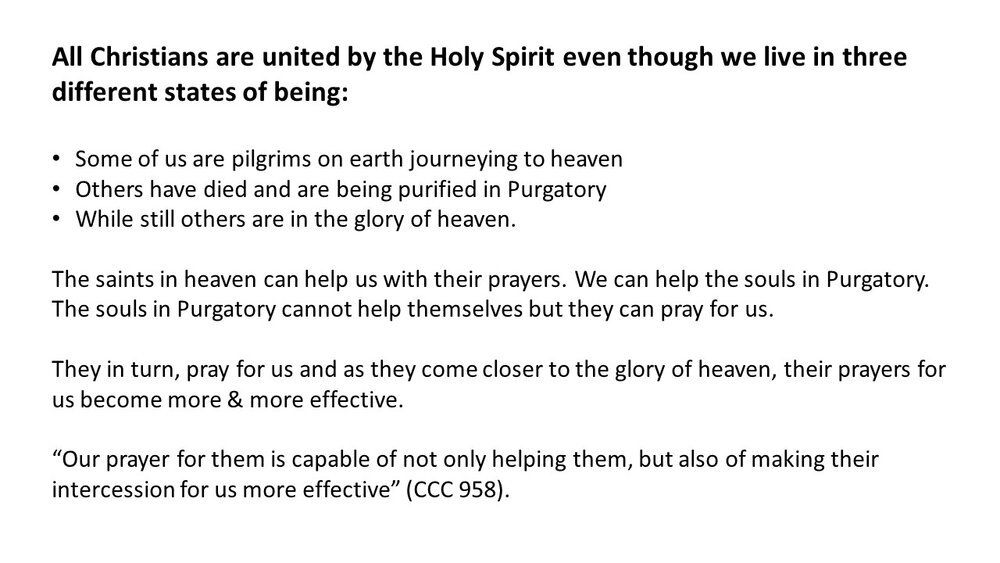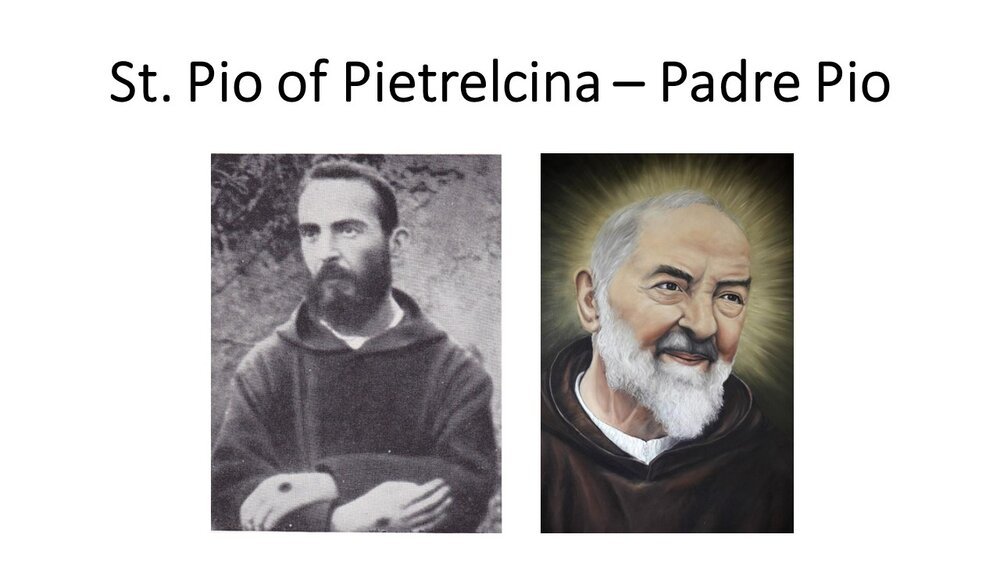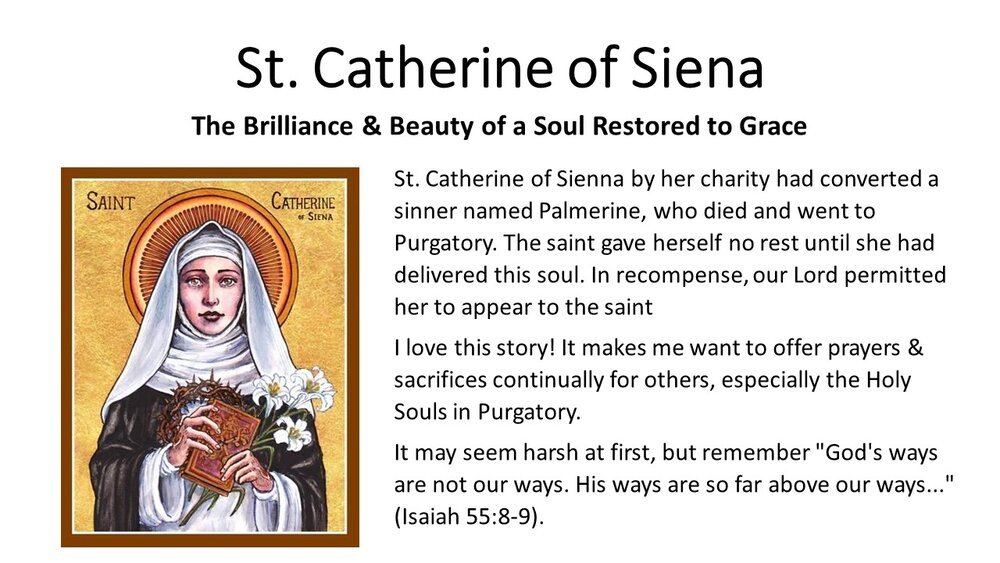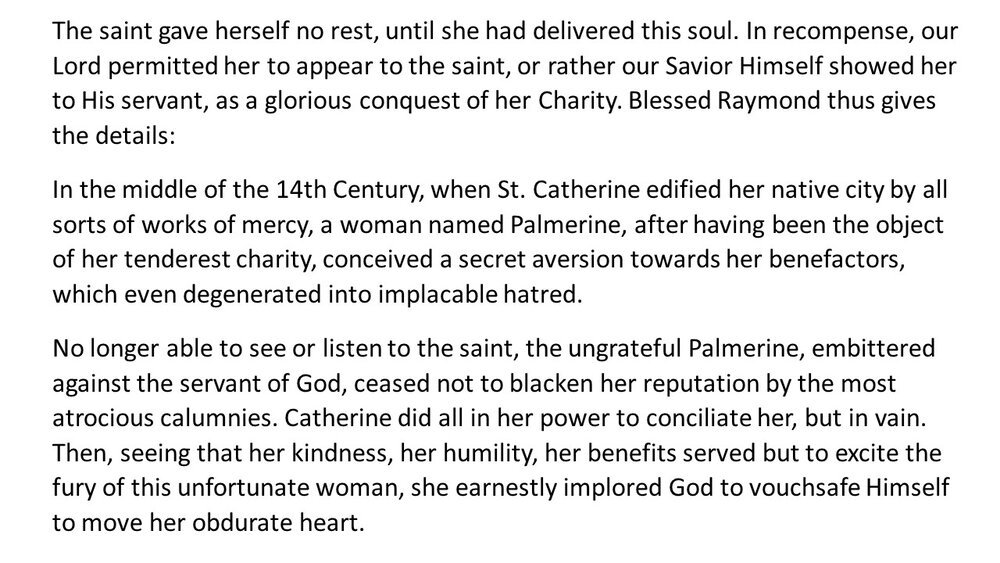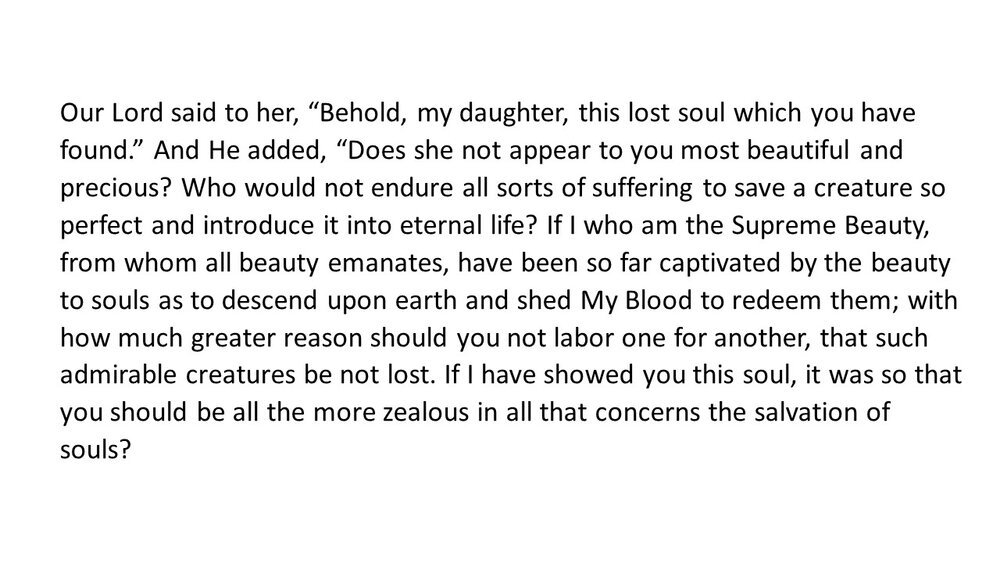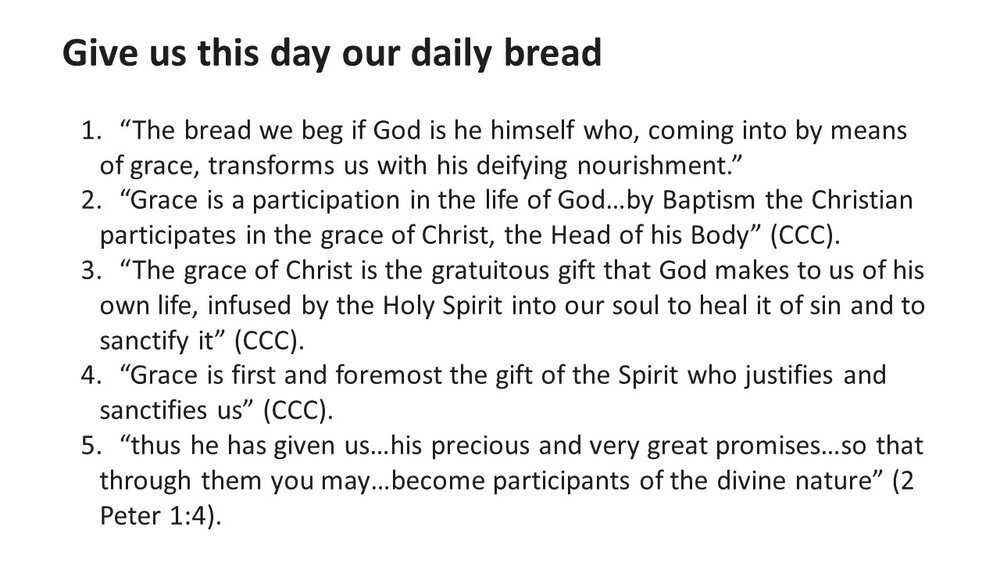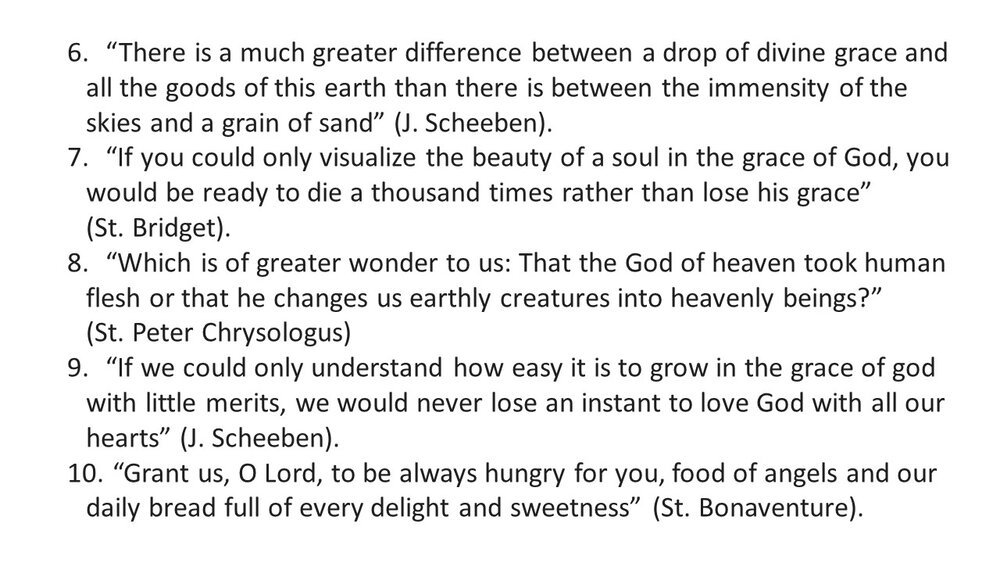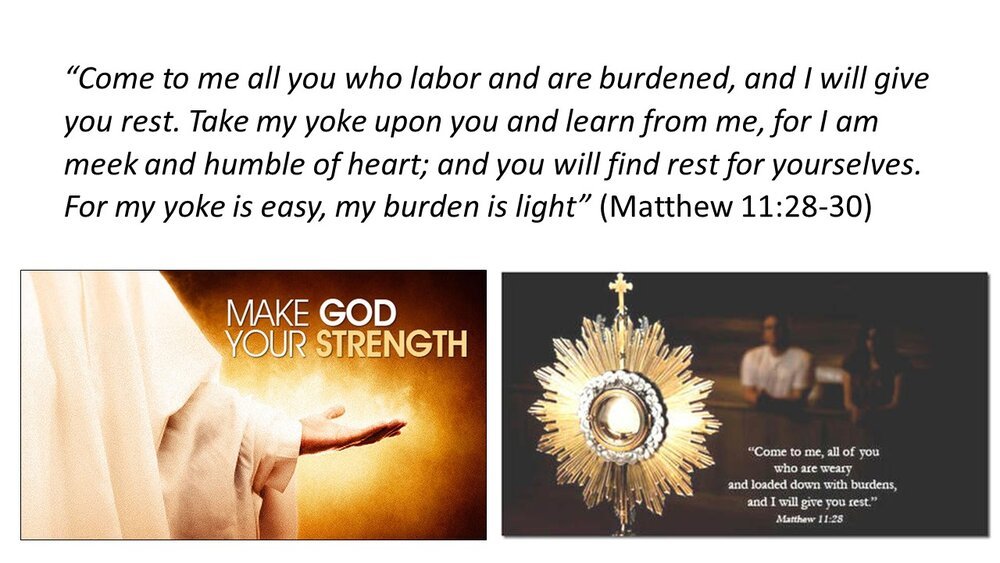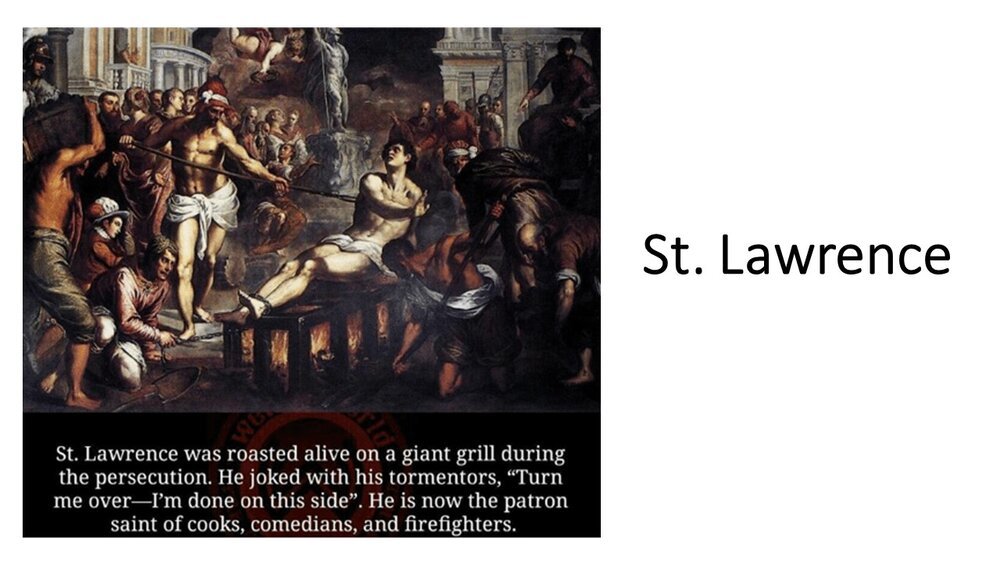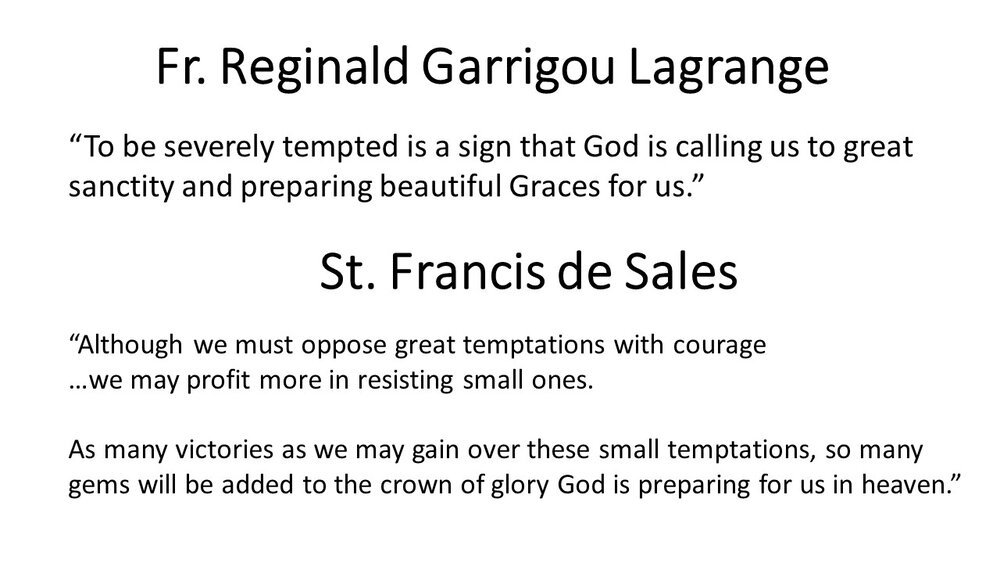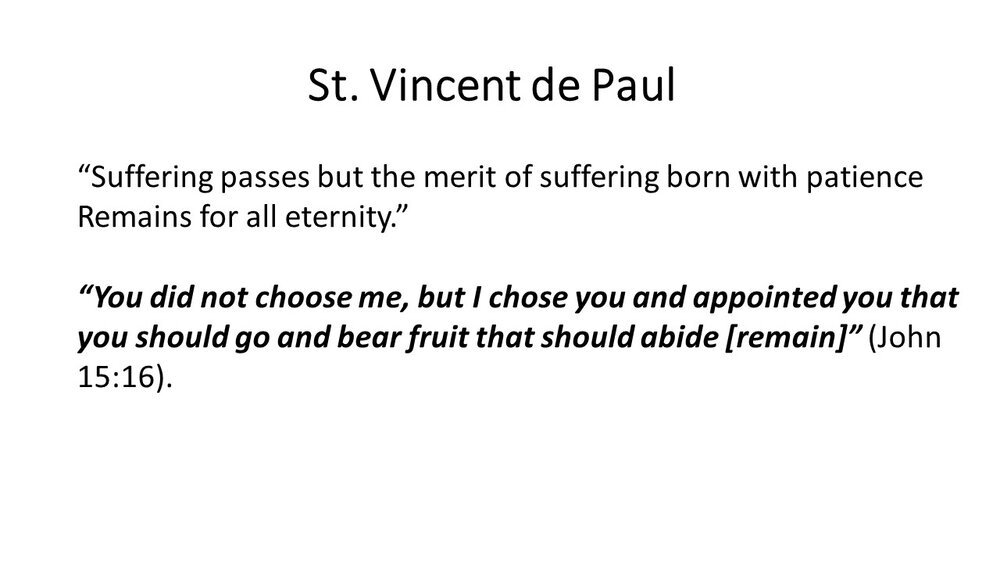
Why Me? Why, God?
Understanding the Deeper Meaning & Life-changing Catholic Teaching on Redemptive Suffering
The instructor for this course is Dr. Troy Hinkel from Holy Family School of Faith. You can listen to an audio recording of his teaching each week with the exception of week three. Past participants have found that listening to the audio recording with headphones work well but they are not necessary. There are PowerPoint slides to go along with the teaching each week. I have also included a transcript of each week’s lesson.
Session Three
What Can the Saints Teach Us about Suffering?
On this page you will find the three items used in this session:
The PPT slides that go along with the written talk (no mp3 for this session).
The transcript of the talk including the PPT slides.
Rosary meditation on St. Faustina and suffering.
Videos (about St. Maximillian Kolbe and St. Pio)
Testimony: The Brilliance & Beauty of a Soul Restored to Grace.
Why Can the Saints Teach Us about Suffering?
THERE IS NO PODCAST FOR THIS SESSION.
The saints have solved the riddle about why God allows his children to suffer and they have much to teach us.
Press the white button below to read a transcript of “What Can the Saints Teach Us about Suffering?” The slides for this talk are below. Below the transcript is an audio file of a rosary meditation on St. Faustina and suffering. There are also videos (about St. Maximillian Kolbe and St. Pio) that we listened to as well as one more about St. Pio of Pietrelcina (Padre Pio).
Below is the transcript of the talk including the PPT slides
St. Faustyna (St. Faustina) & Suffering
This meditation on St. Faustyna and Suffering is given in the context of a 5-decade rosary meditation. The transcript is below.
Meditation One
I have often thought, if it wasn’t for other people I would never sin. This is not true, of course but the behavior of other people can be a source of anger, anxiety or fear. The question is: What is God’s perspective on these things and how should we respond?
Diary of St. Faustina 31
Once I saw a big crowd of people in our chapel, in front of the chapel and in the street, because there was no room for them inside. The chapel was decorated for a feast. There were a lot of clergy near the altar, and then our sisters and those of many other congregations. They were all waiting for the person who was to take a place on the altar. Suddenly I heard a voice saying that I was to take the place on the altar. But as soon as I left the corridor to go across the yard and enter the chapel, following the voice that was calling me, all the people began to throw at me whatever they had to hand: mud, stones, sand, brooms, to such an extent that I at first hesitated to go forward. But the voice kept on calling me even more earnestly, so I walked on bravely.
When I entered the chapel, the superiors, the sisters, the students, and even my parents started to hit me with whatever they could, and so whether I wanted to or not, I quickly took my place on the altar. As soon as I was there, the very same people, the students, the sisters, the superiors and my parents all began to hold their arms out to me asking for graces; and as for me, I did not bear any grudge against them for having thrown all sorts of things at me, and I was surprised that I felt a very special love precisely for those persons who had forced me to go more quickly to my appointed place.
Meditation Two
Jesus called Faustina to take her appointed place at the altar meaning he called her to become like Him, holy, a Saint.
One would expect the clergy, Faustina’s mother-superior, the other nuns, and her own parents to be the people who would be her greatest help and support. Instead, they were her cross.
It was those closest to her, who should have been her ally in the battle who acted as her enemy. They misdiagnosed her tuberculosis, saying there was nothing wrong with her but that she was just lazy. They gossiped behind her back. They disbelieved that Jesus was appearing to her and asking her to spread devotion to Divine Mercy.
The very people you would expect to help her in her mission did nothing but try to block, discourage or destroy her. They betrayed her. Why would God allow this to happen?
Meditation Three
The goal of our life is union with God by accepting, loving, and doing His will.
That which prevents us from reaching our goal – union with God – is not other people – but our sin and vice – pride, rebellion, disobedience, anger, envy…on and on. What separates us from God is a lack of virtue, the highest of which is charity.
Well, how do we grow in virtue? How does a muscle grow? By lifting a heavy weight. God allowed Faustyna to lift heavy weights. She was misdiagnosed and called lazy so she could grow in humility, to be gossiped about so she could grow in forgiveness, to be disbelieved so that she could have greater trust in Him…
Meditation Four
How many enemies do you have? How many people misunderstand you? How many mistreat you? All the people who misunderstood and mistreated Faustyna were not her enemies. They were her greatest benefactors. Dealing with them caused Faustyna to rapidly advance in virtue. These so-called enemies were her greatest help to union with God. Without them she could not have reached her appointed place – to become a Saint.
Oh God, give me the grace to see that all those who seem to cause me the greatest harm, are my greatest help to my appointed place!
Meditation Five
When we experience difficulties from other people, rather than becoming filled with rage, anxiety, which takes us away from God and ruins our health, instead ask: God, what do you want me to learn? How do you want me to respond? What virtue do you want me to practice?
What other people do may be objectively wrong. And you may not like it. You don’t have to. To benefit make the choice to respond with virtue and God will turn all things to your benefit.
Nothing can happen that God does not will or allow. If he allows difficult people in your life, it is for the transformation of your vice to virtue. You are safe in the hands of God. Trust Him and respond to him.
The CCC teaches us that:
In time we can discover that God in his almighty providence can bring a good from the consequences of an evil, even a moral evil, caused by his creatures: "It was not you", said Joseph to his brothers, "who sent me here, but God. . . You meant evil against me; but God meant it for good, to bring it about that many people should be saved."
We were made for the struggles we’re facing right now. Without them we would not reach our appointed place.
Lord help me to love those who are difficult the way Faustyna did when she said: I was surprised that I felt a very special love precisely for those persons who had forced me to go more quickly to my appointed place.
St. Maximillian Kolbe & St. Pio of Pietrelcina (Padre Pio)
Below is an excellent talk by Dr. Mike Scherschligt from School of Faith about the life and death of St. Maximillian Kolbe and two others about Padre Pio.
The Brilliance & Beauty of a Soul Restored to Grace
By Reverend F. X. Schouppe S.J
St. Catherine of Sienna by her charity had converted a sinner named Palmerine, who died and went to Purgatory. The saint gave herself no rest until she had delivered this soul. In recompense, our Lord permitted her to appear to the saint.
I love this story! It makes me want to offer prayers & sacrifices continually for others, especially the Holy Souls in Purgatory. It may seem harsh at first, but remember "God's ways are not our ways. His ways are so far above our ways..." (Isaiah 55:8-9).
God is more inclined to reward than to punish, and if He inflict a chastisement upon those who forget the souls so dear to His Heart, He shows Himself truly grateful towards those who assist Him in the person of His suffering spouses. In recompense He will one day say to them,
“Come, ye blessed of my Father, possess the kingdom which is prepared for you. You have exercised mercy towards your necessitous and suffering brethren; Amen, I say to you, as long as you did it to one of these my least brethren, you did it to Me” (Matthew 25: 40).
Very often in this life Jesus rewards compassionate and charitable souls by the bestowal of many favors. St. Catherine of Sienna by her charity had converted a sinner named Palmerine, who died and went to Purgatory.
The saint gave herself no rest, until she had delivered this soul. In recompense, our Lord permitted her to appear to the saint, or rather our Savior Himself showed her to His servant, as a glorious conquest of her Charity. Blessed Raymond thus gives the details:
In the middle of the 14th Century, when St. Catherine edified her native city by all sorts of works of mercy, a woman named Palmerine, after having been the object of her tenderest charity, conceived a secret aversion towards her benefactors, which even degenerated into implacable hatred. No longer able to see or listen to the saint, the ungrateful Palmerine, embittered against the servant of God, ceased not to blacken her reputation by the most atrocious calumnies. Catherine did all in her power to conciliate her, but in vain. Then, seeing that her kindness, her humility, her benefits served but to exite the fury of this unfortunate woman, she earnestly implored God to vouchsafe Himself to move her obdurate heart.
God heard her prayer by striking Palmerine with a mortal malady; but this chastisement did not suffice to make her enter into herself. In return for all the tender care which the saint lavished upon her, the wretched woman loaded her with insults and drove her from her presence. Meanwhile, her end approached, and a priest was called to administer the last Sacraments. The sick person was unfit to receive them, on account of the hatred which she nourished, and which she refused to give up. On hearing this, and seeing that the unfortunate creature had already one foot in Hell, Catherine shed a torrent of tears and was inconsolable. For three days and three nights she ceased not to supplicate God on her behalf, adding fasting to prayer.
“What! Lord,” she said, “will you allow this soul to be lost on my account? I conjure you, grant me at any price her conversion and her salvation. Punish me for her sin, of which I am the occasion: it is not her, but me, the chastisement should strike. Lord, refuse me not the grace which I ask of you. I shall not leave you until I shall have obtained it. In the name of your Goodness, of your Mercy, I conjure you, most merciful Savior, not to permit the soul of my sister to leave her body until it has been restored to your grace.”
Her prayer, adds her biographer, was so powerful, that she prevented the sick woman from dying. Her agony lasted for three days and three nights, to the great astonishment of her nurses. Catherine during this time continued to intercede, and ended by gaining the victory. God could no longer resist, and worked a miracle of mercy. A ray of heavenly light penetrated the heart of the dying woman, showed her, her fault, and nerved her to repentance. The saint, to whom God revealed this, hastened to her side. As soon as the sick person saw her, she gave her every possible mark of friendship and respect, accused herself aloud of her fault, received with piety the last Sacraments, and died in the grace of God.
Notwithstanding the sincerity of her conversion, it was to be feared that a sinner who had barely escaped Hell would have to undergo a severe Purgatory. The charitable Catherine continued to do all in her power to hasten the moment when Palmerine would be admitted to the glory of Paradise.
So much Charity could not fail to meet its reward. “Our Lord,” writes Blessed Raymond, “showed to His spouse that soul saved by her prayers. It was so brilliant, that she told me she could find no words capable of expressing its beauty. It was not yet admitted to the glory of the Beatific Vision, but had that brightness which creation and the grace of baptism imparts.
Our Lord said to her, “Behold, my daughter, this lost soul which you have found.” And He added, “Does she not appear to you most beautiful and precious? Who would not endure all sorts of suffering to save a creature so perfect and introduce it into eternal life? If I who am the Supreme Beauty, from whom all beauty emanates, have been so far captivated by the beauty to souls as to descend upon earth and shed My Blood to redeem them; with how much greater reason should you not labor one for another, that such admirable creatures be not lost. If I have showed you this soul, it was so that you should be all the more zealous in all that concerns the salvation of souls?
Original Source: PURGATORY EXPLAINED BY THE LIVES AND LEGENDS OF THE SAINTS
Below are the PowerPoint slides for this session










